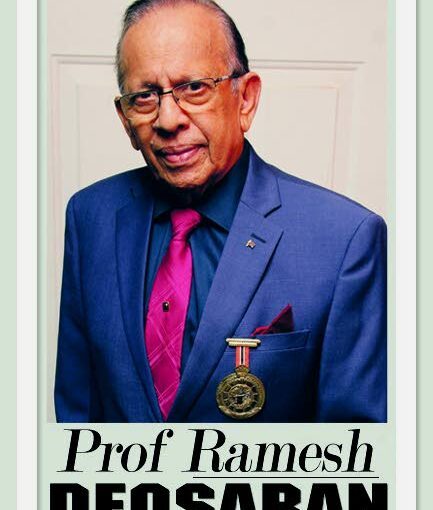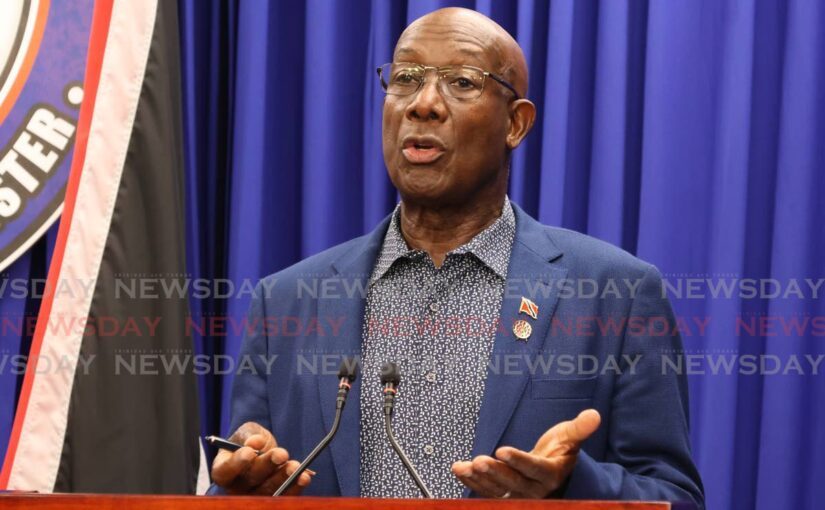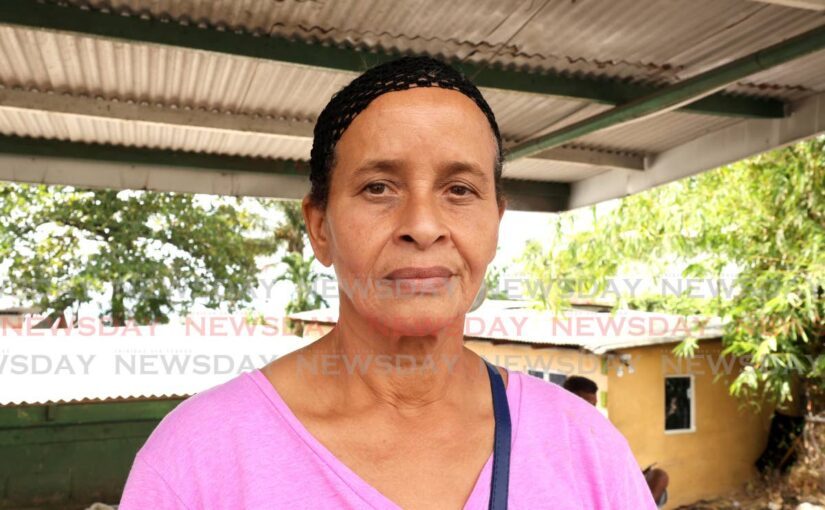As we’re approaching the final hours of 2024, it is a good time to take a step back and remember what this year taught us. History might not...
Vous n'êtes pas connecté
- English
- Français
- عربي
- Español
- Deutsch
- Português
- русский язык
- Català
- Italiano
- Nederlands, Vlaams
- Norsk
- فارسی
- বাংলা
- اردو
- Azərbaycan dili
- Bahasa Indonesia
- Հայերեն
- Ελληνικά
- Bosanski jezik
- українська мова
- Íslenska
- Türkmen, Түркмен
- Türkçe
- Shqip
- Eesti keel
- magyar
- Қазақ тілі
- Kalaallisut ; kalaallit oqaasii
- Lietuvių kalba
- Latviešu valoda
- македонски јазик
- Монгол
- Bahasa Melayu ; بهاس ملايو
- ဗမာစာ
- Slovenščina
- тоҷикӣ ; toğikī ; تاجیکی
- ไทย
- O'zbek ; Ўзбек ; أۇزبېك
- Tiếng Việt
- ភាសាខ្មែរ
- རྫོང་ཁ
- Soomaaliga ; af Soomaali
Rubriques :
 Maroc - NEWSDAY.CO.TT - A la Une - 05/Jan 04:17
Maroc - NEWSDAY.CO.TT - A la Une - 05/Jan 04:17
Crime and ‘crabs in a barrel’
During the Christmas season, a group of friends with mixed political loyalties, like so many citizens now, were expressing serious concerns about public-safety issues – crime, murders, corruption, politics. During the agitated discussion, blame was put on several high public officials whose names were loudly, even angrily, called out. There were blaming, fingerpointing, etc, accompanied by disparaging words like “incompetent,” “unaccountable,” “shameless,” hypocritical” even “lazy and greedy”– until someone quietly asked: “Could we discuss these matters without calling names?” The response was: “But these highly-paid people are responsible, should be accountable and, if they can’t perform, resign.” Calling such names publicly, however, does cause embarrassment, even humiliation. It seems a price to pay for public office. Right now, it seems risky not only to call names but to go after gangs too – a measure of our changed society. Now our society, like others, has three public sides There is 1: its soft side, 2: its structures and institutions and in between, 3: its evil side. The soft side includes respect, kindness, gratitude, integrity, co-operation, trust in those who govern us and even discipline and civility. These are the qualities which make a civilised society. However, these are really not “soft.” They have hard impact on our social and political relations but, as widely noted, are in short supply here. During the numerous Christmas and New Year speeches, these “soft” psychological indicators were widely used by several top-level officials (names left out) to advise the rest of us how to behave. They appeared disappointed that these humanising indicators were in very short supply. In fact, the structures and public institutions which were expensively built and staffed to help develop and secure these “soft” forms of human behaviour are themselves are in states of collapse. They became inefficient, ineffective and visibly not fit for their purpose. This joint disaster is like a cancer: it started small, but soon uncontrollably spread all over. Even talkative leaders (no names called) from some of these expensive institutions have been found seriously lacking in practising the “good” behaviours they demand of our distressed 1.4 million population, which, when combined with the civic shortages on the “soft” side, leads us inexorably into our third side, the evil side: public disorder, crime, murders, corruption, painful inequity, mistrust, political arrogance – bringing the society near to overall collapse. Through such failed moral leadership the country loses the greatest teacher of all – good examples. It is wisely said, “Don’t only tell me what to do, show me you do it too.” That is especially so with some politicians (no names), where not only responsibility and accountability are thrown out of the window, but the political system is thrown into reverse gear, upside down, when these high-level politicians (no names) complain that it is the people who are to blame for the crime mess, not them. No wonder the broken Advisory Committee on Constitution Reform described our society as “contradictory.” No wonder, too, Lloyd Best drifted from mechanical economics into what he called “social psychiatry” to understand our society. By their many confounding twists and turns, some politicians (no names) seem in need of mental treatment too. In fact, to really understand this society, its competing fanatics and “do-no-wrong” politicians (no names), Sigmund Freud would have to come to the rescue with his theory of the subconscious and denial. Now while trying to call a spade a spade without calling names, I came across a relevant article by Kenny Persad (Newsday, December 21) titled: Crabs-in-the-barrel mentality. You may find such “crabs” in politics (no names), in university (no names), in business, voluntary groups and in several public institutions. Mr Persad, referring to the widespread “crab phenomenon,” explains: “The metaphor describes a situation where individuals, instead of supporting one another, try to pull down each other down, much like crabs in a barrel that prevent one from escaping.” Persad added: “When people lack personal achievements, it can foster feelings of resentment towards those who have made significant strides in their careers or personal lives.” Like envy, Persad says this phenomenon “frequently shows up in the Caribbean as a response to anyone who dared to be exceptional or stand out.” This “crabs in a barrel” metaphor was also a favourite of the late Sir Ellis Clarke in describing our social character. We once came up with the “Carnival mentality.” Do we now have a “crab mentality” in this small, competitive society? The post Crime and ‘crabs in a barrel’ appeared first on Trinidad and Tobago Newsday.
Articles similaires
The Progressive Authoritarian Tide Retreats – OpEd
Two months ago in the UK, a 17-year old girl with autism took the field in her all-women team for a match in a single-sex soccer league. She noticed...
Ramadhar wants COP info by December 27
INTERIM Congress of the People (COP) political leader Prakash Ramadhar has called on interim party chairman Lonsdale Williams to provide him with...
Losing loved one and twinkling lights
THE EDITOR: These are heavy, heartbreaking times for so many, as communities grapple with loss and the collective grief that binds us in moments of...
45 Days In Ukraine, 1,000 Days In War – Essay
By Kaspars Ģērmanis (FPRI) -- The title of this essay would have been a little bit different if I had spent five more days in Odesa as planned....
PM’s New Year’s Day message: Live in hope, don’t submit to fear
THE Prime Minister has called on the nation not to submit to fear but work together to achieve the hope of a brighter future. Dr Rowley made this...
Diego Martin West residents ready for fresh face to represent them
THERE were mixed reactions from Diego Martin West constituents on January 4 to the Prime Minister’s announcement of his intended retirement from...
Americans are sick of the health insurance grinches who steal our money and our lives
In the past few weeks, one thing has become crystal clear in America: The public outrage after the assassination of UnitedHealthcare CEO Brian...
Syria’s Ten Post-Assad Challenges – OpEd
By Anwar Abas It took barely ten days for the regime of Syrian President Bashar al-Assad to fall. But his dramatic ousting was not simply down to...
Nigeria Has Convicted 742 Terrorists in 1,700 Terrorism Cases in 4 Years - ONSA
The Office of the National Security Adviser (ONSA) has revealed that between October 2017 and December 2024, Nigeria secured 742 terror convictions,...
Les derniers communiqués
-
Aucun élément






